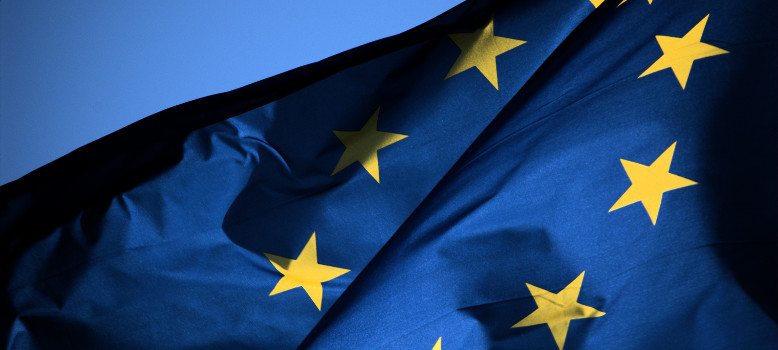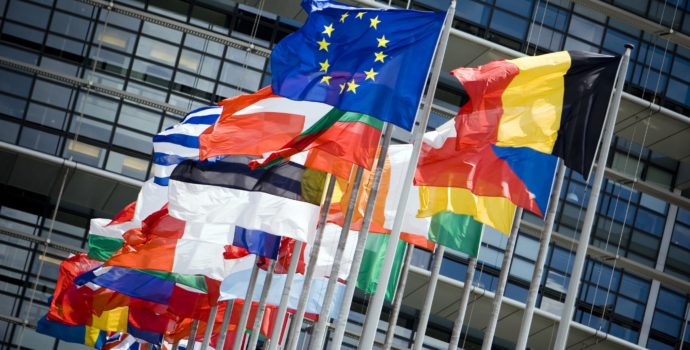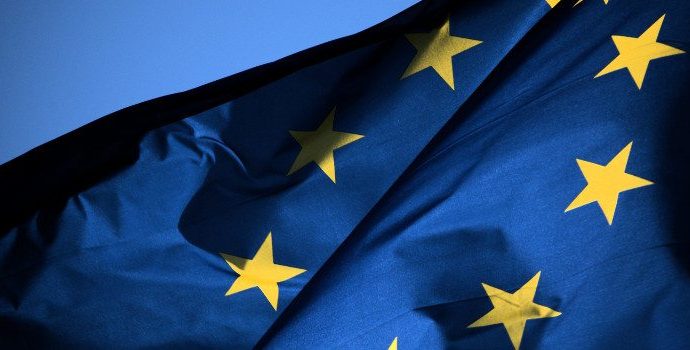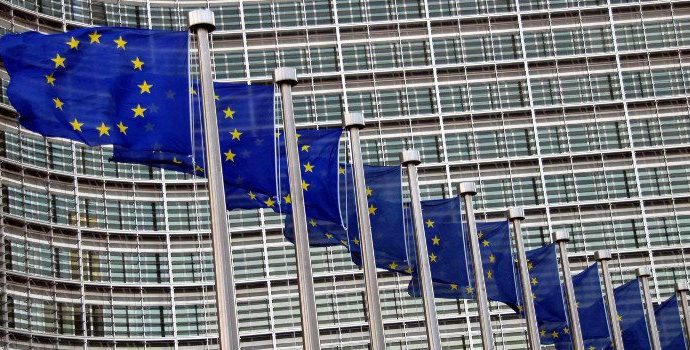European Commission Daily News 5th Feb

European Commission and top chefs promote sustainable consumption of fish and seafood
The European Commission has launched ‘Taste the Ocean’, a brand new social media campaign in which top chefs encourage the consumption of sustainably caught or produced fish and seafood. This campaign comes at a time when fishermen and aquaculturists are faced with the economic repercussions of health measures linked to the fight against the COVID-19 pandemic, such as the various lockdowns or the closure of restaurants and catering services – which represent the main outlets for their products. With this campaign, the Commission also aims to make consumers aware of the importance of local, seasonal and sustainable consumption. When produced or harvested correctly, fish and seafood can have an important place in a sustainable diet, with an environmental footprint and a much lower carbon footprint than most animal proteins of terrestrial origin. EU Environment, Oceans and Fisheries Commissioner Virginijus Sinkevičius said: “Empowering consumers is essential to achieve more sustainable habits. By working hand in hand with some of Europe’s most famous chefs, we want to educate consumers about the importance of individual seafood choices for the health of the seas, while supporting the sustainable replenishment of our coastal areas and EU aquaculture producers. »Over the next three months, top chefs from nine EU countries (Belgium, Denmark, Spain, France, Greece, Italy, the Netherlands, Portugal and Romania) will share their recipes based on different kinds. of fish or crustaceans. Other countries will follow at the end of the year. During the campaign, the Commission will also present the challenges and complexities of the sector. Since the start of the COVID-19 pandemic, the Commission has adopted a series of temporary and targeted measures to respond to the challenges facing the seafood community, such as exceptional changes and flexibility measures in the Fund European Union for Fisheries and the Sea for a simplified reallocation of financial resources.
Competition: Conference on 4 February 2021 on competition policy contributing to the European Green Deal
Capping a period of wide-ranging public consultation and debate, Executive Vice-President Margrethe Vestager, in charge of competition policy, brought together a broad range of politicians, CEOs, NGOs, academics, competition experts and enforcers to discuss how competition policy can further support the objectives of the European Green Deal. The conference was followed by 2,500 participants. The role of competition policy is to protect effective competition in markets and cannot replace the vital role of regulation in fighting climate change and protecting the environment. At the same time, it contributes to helping Europe achieve its green goals. The panellists reflected on how competition rules and sustainability policies work together and on whether they could work together even better in the future. There was broad consensus that competitive markets will drive the innovation Europe needs to adopt more energy-efficient technologies and to build back stronger following the coronavirus crisis. Executive Vice-President Vestager stressed that “We have what it takes to make a difference – to leave our children a world where they breathe clean air, and drink unpolluted water; where the oceans and forests are still full of life; and where human activity is not accelerating climate change. But to do that, we all need to work together. And that includes competition enforcers. Since the start of this mandate, we launched a review of our competition rules to make sure they are fit for purpose, in a changing world – a world of twin, green and digital, transitions, and of growing challenges to fair and open global trade.” The views and contributions collected during the consultation and yesterday’s conference will feed into the Commission’s work, including the ongoing review of its guidelines in the field of antitrust and State aid. You can watch the recording of the conference here.
Executive Vice-President Dombrovskis takes part in High-Level Dialogue on Trade and Investment
The first meeting of the High-Level Dialogue on Trade and Investment hosted by India this year, is taking place virtually today, 5 February. Executive Vice-President and Commissioner for Trade, Valdis Dombrovskis, will co-chair it with Indian Minister of Commerce and Industry, Piyush Goyal. In line with the Joint Statement of the 15th EU-India Summit of July 2020, the High-Level Dialogue will discuss a broad range of issues, including trade and investment relations, market access issues and cooperation on WTO reform. Executive Vice-President Dombrovskis said: “This first High-Level Dialogue on EU-India trade and investment can be a cornerstone for expanding and enriching our bilateral relations. We are already mutually important economic partners, but it is clear that we can do much more. There is considerable untapped potential in our trade and investment relationship. In this respect, 2021 can be an important year. Portugal has assumed the rotating presidency of the Council of the EU, and they have made EU-India relations a top priority. I hope we can make progress on trade matters as an important stepping-stone towards the EU-India Summit”. After today’s High-Level Dialogue, a Joint Statement will be published here.
Ocean governance: EU joins the International Coral Reef Initiative to protect marine ecosystems
Today Commissioner for Environment, Oceans and Fisheries, Virginijus Sinkevičius, is representing the EU in the General Assembly of the International Coral Reef Initiative (ICRI) which confirmed EU’s membership in this global partnership for the conservation of the world’s coral reefs. In the context of the EU’s ambitious International Ocean Governance agenda, the ICRI membership is an opportunity to work together with the almost 90 organisations and countries – members of the ICRI – which are acting to protect vulnerable marine ecosystems by sustainably managing coral reefs and associated ecosystems, building capacity and raising awareness. Commissioner Sinkevičius said: “Coral reefs are emblematic of rich marine life. Yet, the rapid degradation of these underwater worlds is also a very stark reminder of the pressures that human activity put on our planet, not least our oceans. The protection of these vital marine ecosystems is of great importance to biodiversity, sustainable food supply and the global climate system.” Coral reefs and related ecosystems are facing serious degradation, primarily due to human-caused stresses such as pollution, habitat destruction and climate change. This work will feed into the preparations for the UN Biodiversity Conference in Kunming, China (COP 15) later this year that is expected to agree on an ambitious post-2020 global biodiversity framework. The Commission presented last year, as part of the European Green Deal, its Biodiversity Strategy which aims, amongst others, to strengthen the protection of marine ecosystems and to restore them to a “good environmental status”.
Coronavirus Response: Commission takes stock of implementation of financial sector relief measures for consumers and businesses
Today, Commissioner McGuinness will chair a roundtable meeting with the European financial sector, including consumer and business association representatives, to evaluate relief measures adopted to mitigate the economic impact of the COVID-19 crisis. The meeting comes as consumers and businesses continue to be impacted by the pandemic. Topics on the agenda include a discussion on measures aimed at supporting consumers in relation to over-indebtedness and measures to assist businesses impacted by the shutdown of significant parts of the economy. The objective is to have an open dialogue about relief measures in the financial sector and their application at national level. The discussion concerns initiatives such as payment moratoria, safer cashless payments while ensuring cash payments remain available for those who need them, and loans that aim to mitigate the impact of the coronavirus crisis. Commissioner McGuinness said: ”I appreciate the readiness of consumers, business organisations and financial sector participants to work together to try and find solutions to support those who need it most in these difficult times. Even when the intensity of the pandemic abates, we will need to be mindful of its long-term consequences for some time to come. I look forward to exploring what improvements to current relief measures could be useful for consumers and businesses, and also how fair and balanced solutions can be found to help citizens and viable firms when support measures are gradually phased out in the future.” As announced in the Commission’s Banking Package on 28 April 2020, on 28 May 2020 there was already a first meeting of the roundtable to mark the beginning of a dialogue with the European financial sector to see what practical relief measures can be put in place to alleviate the impact of the coronavirus crisis. Today’s roundtable follows the adoption of a list of “best practices” agreed by the financial sector and consumer and business organisations in July 2020.
Read the European Commission Daily News in full here.




